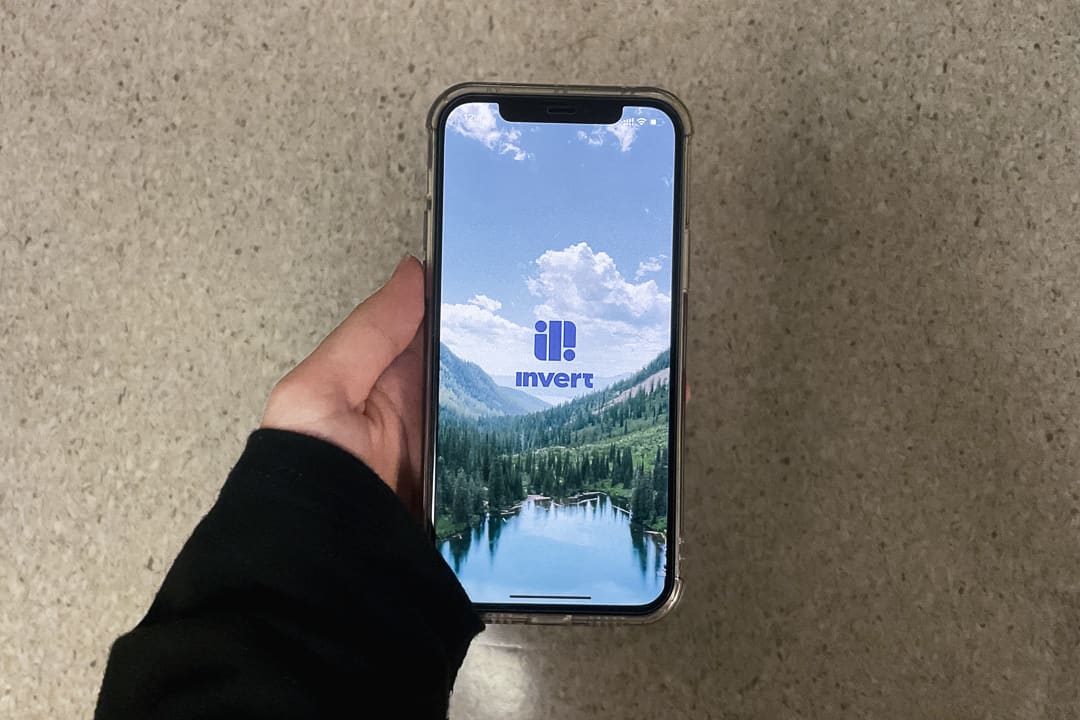Though young people don’t agree on much, they express one sentiment overwhelmingly: the climate crisis is a danger to the future. In a 2021 survey conducted by Nature, around 60 per cent of people around the world aged 16–25 reported being either “very worried” or “extremely worried” about the climate. Overall, 95 per cent of respondents felt some variation of worried, with only 5 per cent responding that they were “not worried”. This distress may come from both the tangible impacts of the climate crisis and a sense of helplessness. What can an 18-year-old do to fight rising greenhouse gas emissions?
One way to tackle this question is through Invert, a carbon footprint tracking app launched this August. Users can input their daily habits and Invert will help them track their personal impact on the environment, give suggestions for lowering them, and connect the user to a community oriented toward the same goals on the app.
For many, this is a great place to start — a majority of university students aren’t battling lawmakers in court, but they want to help and may feel intimidated by the scope of the issue. Invert offers guidance in getting involved in climate activism and finding ways to fight the climate crisis.
The Varsity reached out to Invert’s head of corporate client success, Arsalan Talebzadeh, who attended the University of Toronto for his MBA in 2016. Talebzadeh has worked in sustainability throughout his career in mining engineering and related industries, and he brings that same passion to Invert.
Invert began with a few people taking inspiration from the 2015 Paris Agreement — an international treaty outlining a path to carbon neutrality. The new company developed a multi-faceted approach to tackling the climate crisis, helping individuals improve their environmental impact and educating companies about their offsets. The latter is especially important due to past controversies with carbon-neutral efforts.
“There’ve been some missteps in the past that happened a few years back… so there’s been a bad reputation within the industry, and a lot of companies are still hesitant,” explained Talebzadah. One such controversy is with carbon offset systems in British Columbia. The mishandling of the initial creation of the systems gave the company Pacific Carbon Trust a monopoly over selling carbon offsets to the government.
And what about Invert’s future? Talebzadeh said that the company hopes to expand its environmental project investment, encouraging global engagement. Invert advertises itself as differing from other carbon-tracking apps by investing in the projects it advertises — ensuring that the effort is high-quality and trustworthy. One such project is Carbon Cure — a Canadian company that stored carbon dioxide in concrete to mitigate its effects on the climate. The process discovered by Carbon Cure is not just theoretical but also practical; it is being used in Canadian construction projects to help us reach our climate goals.
Talebzadeh’s advice for young people who may feel helpless against the scope of the climate crisis is to recognize the progress already made: “I think if you look at the progress that’s been made in the last two, three years compared to the two decades prior, it’s huge.” His perspective from within the industry makes him hopeful: “I wouldn’t feel that one voice isn’t making a difference because, collectively, we are.” The current emissions curve is heating the world at a minimum of 0.5 degrees Celsius less than before the Paris Agreement.
Beyond simply tracking your carbon footprint, the company encourages those interested in its work to engage in an ever-growing community, which is why it has multiple university students involved in its projects and development.


